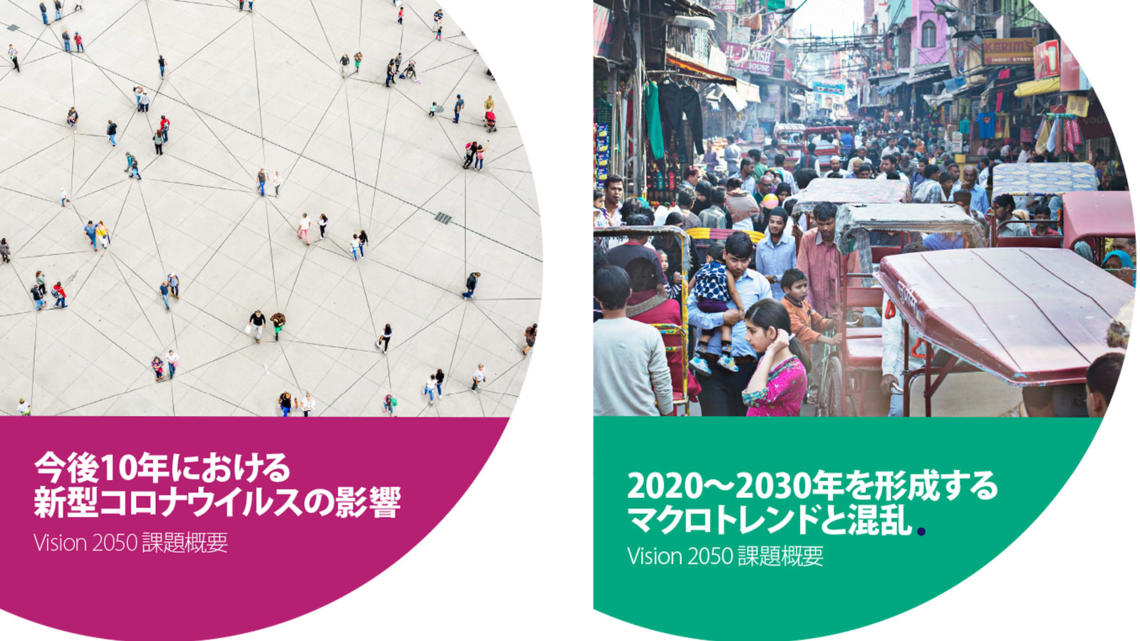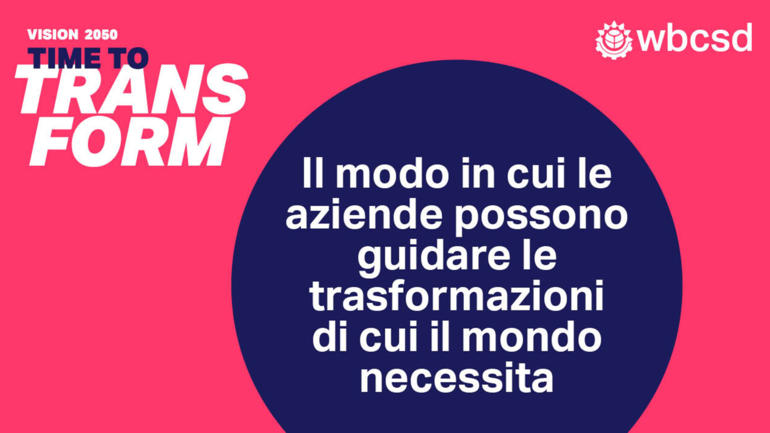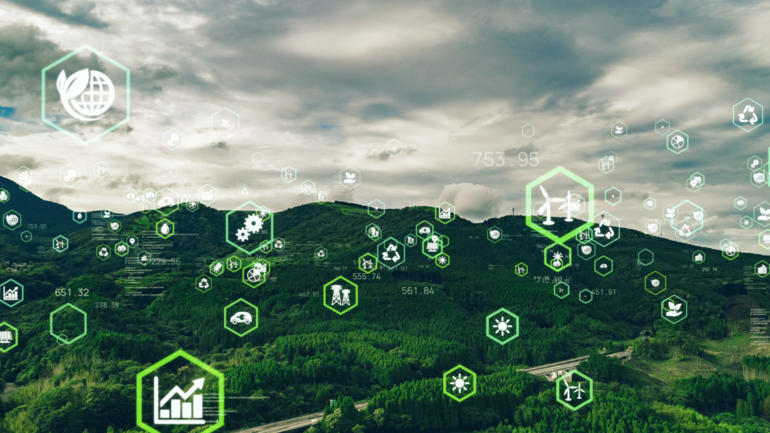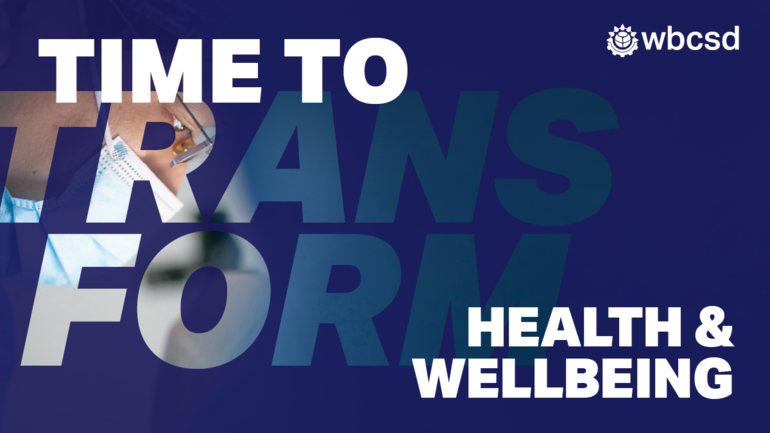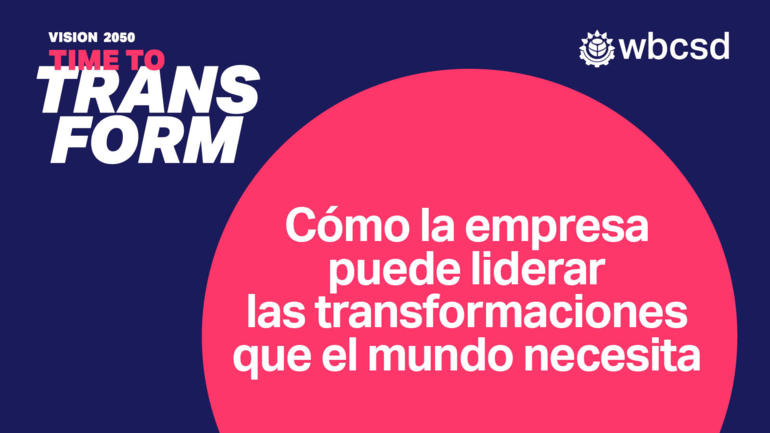Geneva and Tokyo, 4 September 2020: The World Business Council for Sustainable Development (WBCSD) is pleased to launch the Japanese version of two Vision 2050 issue briefs released earlier this year: Macrotrends & Disruptions shaping 2020-2030 and The consequences of COVID-19 for the decade ahead.
These issue briefs, developed in partnership with Volans, provide business with insights that can inform the development of robust strategies: both in response to the rapidly changing context resulting from the COVID-19 pandemic, as well as continually unfolding (predictable and unpredictable) changes in the operating environment over the next decade.
As part of this effort to prioritize where business needs to determinedly drive critical systems transformations, WBCSD partnered with Volans to develop research into the operating environment that business will find itself in over the next 10 years. This research went beyond sustainability challenges, exploring more generally the macrotrends and disruptions that will shape the decade and considering how these could affect business’ ability to operate successfully (as a precursor to it operating sustainably).
The research yielded a set of macrotrends and disruptions that business needs to work within, take account of, or plan for. 12 macrotrends, across demographics, the environment, economics, technology, politics and culture, were identified - in addition to 10 “wildcard” disruptions that could plausibly materialize during the 2020s, resulting in significant impacts. Indeed, some of them already have, and already significant impacts are still snowballing.
Following the rapid escalation of the COVID-19 crisis in March 2020, WBCSD and Volans used the 2020-2030 research as the foundation for further exploration of the longer-term consequences of the COVID-19 pandemic. Its aim is to provide business with insights that can inform the development of robust strategies in response to the rapidly changing context resulting from the COVID-19 pandemic. It explores the systemic vulnerabilities being exposed by COVID-19 and how the crisis could shape the next decade through its interaction with existing demographic, political and cultural divides as well as by accelerating existing trends. In addition, it looks at some lessons from the 2008-9 financial crisis responses to show how COVID-19 responses could affect the next 10 years and beyond. It concludes with an initial overview of the various ways in which business can support efforts to build back better.
Peter Bakker, President and CEO, WBCSD, commented: “Together, these issue briefs provide Japanese businesses with a clear-eyed view of what the 2020s might have in store, so that it can develop more effective strategies for how to respond and make progress on our Vision 2050 of 9+ billion people, living well, within planetary boundaries. Thinking about the way that the future unfolds will help business to better harness the momentum created by tailwinds and be more resilient and adaptive in the face of inevitable headwinds.”
Julian Hill-Landolt, Director, Vision 2050, commented: “All around the world the virus is revealing the fragility of human life – of our public health systems, supply chains, economies, international institutions and alliances. Business cannot be successful without these things being in place: it thrives when it has access to healthy (and educated) employees and customers; it needs all corners of economies and supply chains to be efficient and resilient; it requires a level and open global playing field. Understanding the existing trends, challenges and opportunities being exposed, influenced, and accelerated by the pandemic is critical to the development of recovery strategies in line with our Vision of 9+ billion people, living well, within planetary boundaries.”
About WBCSD’s Vision 2050
The issue briefs are part of a series of interim outputs linked to WBCSD’s current refresh of its Vision 2050, a landmark 2010 report that laid out a pathway to a world in which nine billion people are able to live well, within planetary boundaries, by mid-century. WBCSD is working together with 40 of its member companies (including Japanese members Fujitsu, Mitsubishi Corporation, Sompo Japan Insurance Inc., and Toyota) to update this work and again provide business with a common agenda for action over the decade to come.
The Vision 2050 project will be releasing further issue briefs in the coming months to help companies navigate the challenges of responding to the socio-economic turmoil unleashed by COVID-19, whilst maintaining (and increasing) ambition on sustainable development goals. Among the resources that have already been produced are an analysis of Macrotrends & Disruptions shaping 2020-2030, a report looking at the consequences of COVID-19 for the decade ahead, in addition to insights into how systems transform and innovations that could shape and transform the next decade. Forthcoming issue briefs due to be released later this month will focus on the steps business can take to make itself more resilient to future shocks as well as reflections on how capitalism can and should change to enable a sustainable, inclusive future.
Download the Japanese versions of the Issue Briefs
- The consequences of COVID-19 for the decade ahead – available in English, Spanish, Portuguese, and Japanese.
- Macrotrends and disruptions shaping 2020-2030 – available in English and Japanese
- More WBCSD resources in Japanese
Related Issue Briefs
- Insights into innovations that could shape and transform the next decade
- Systems transformation in support of inclusive and sustainable growth for business
Contact point
- Julian Hill-Landolt, Director, Vision 2050

